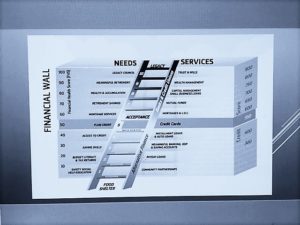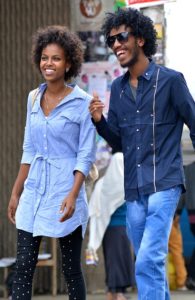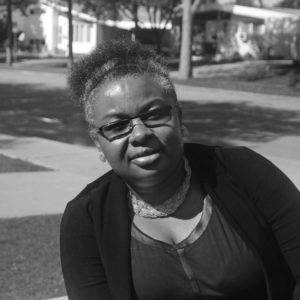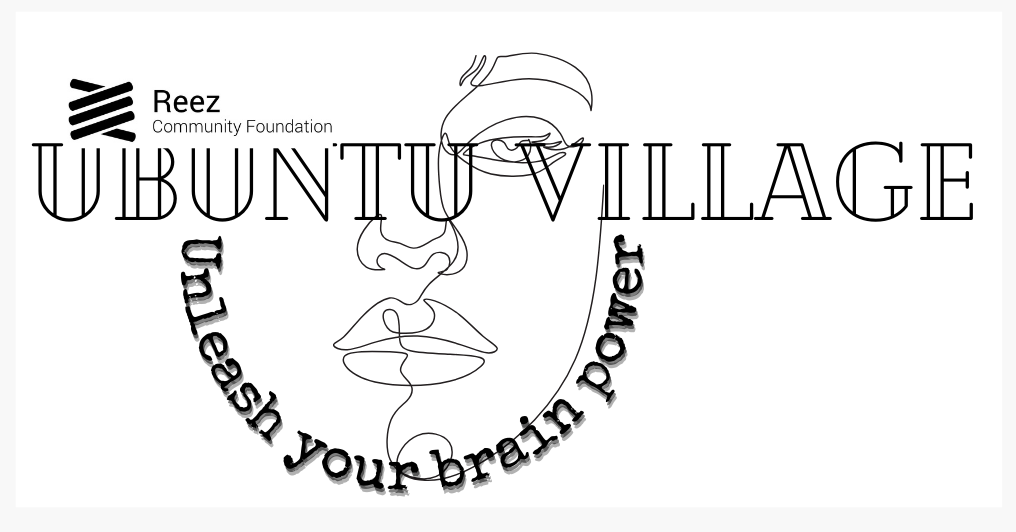At this time of the year, we are all expecting Santa represented by either the man in red or the child, Jesus Christ, who spilled his blood to direct our path back to Heaven. Feelings of goodwill is in the air. We have three to four weeks to be the person we most desire to be as we take actions that embodies attributes such as compassion, peace, hope, joy and generosity of spirit. Francesca Battistelli aptly state this in her song entitled “Heaven Everywhere”. The first three verses reads:
“I hear the bells, they’re ringing loud and clear
You can’t help but love this time of year
It’s Christmastime, there’s something in the air
There’s a little bit of heaven everywhere
Somehow there’s a little more of love
And maybe there’s a little less of us
Or maybe we’re just slightly more aware
There’s a little bit of heaven everywhere
It’s the smile on a man who has finally found hope
It’s the tears of a mother whose child has come home
It’s the joy that we feel and the love that we share
There’s a little bit of heaven everywhere
There’s a little bit of heaven everywhere…”
Indeed, perhaps there is a little less of us or we are just slightly more aware. Are we aware of our need to confront racial injustices wherever we find them? In uniting with advocates or activists, to what extent do allies actually further this work? There continue to be great need for an increasing number of individual allies affirming community accounts of racial injustices to others within their spheres of influence. Was this what Mayor Iverson had in mind in his quest for the spirit of collaboration?
This has an important implication on how the problem and its constituent parts are framed. Indeed, we know that articulating the problem of racism can be challenging, given its multifaceted dimension and layers of complexity that extend to almost all aspect of human activity. This opinion piece intend to focus on racial injustice that leads to economic insecurity and inequity.
I
Typical discussions about becoming economically self-reliant often focus on encouraging sound financial management habits, this discourse is going to be different. We are going to unpack this important topic with a social justice lens. It is the season for empathetic giving after all!
How does one manage the little they have that is already going into mandatory li ving items such as shelter, food and paying down money owed? Money is an integral element of financial management and typically earned in return for value given. We provide value through working for other people as an employee or entrepreneur. The degree to which one has more or less money for work done, is a variable of several factors that can be succinctly split into two baskets of controllable and uncontrollable variables.
ving items such as shelter, food and paying down money owed? Money is an integral element of financial management and typically earned in return for value given. We provide value through working for other people as an employee or entrepreneur. The degree to which one has more or less money for work done, is a variable of several factors that can be succinctly split into two baskets of controllable and uncontrollable variables.
A classic uncontrollable basket is the state of the economy. The widespread unemployment in response to falling oil prices easily comes to mind. As Canadians we have become increasingly preoccupied with the state of our economy since the last quarter of 2014, when it began to take a sustained nose dive. The recently published November job numbers from Statistic Canada shows a reduction in joblessness rate to 6.8 per cent. The economy reportedly created 10,700 jobs, mostly part time and in the service sector. As usual, there are variability across provinces with Alberta’s jobless rate going up from 8.5% to 9% – the highest since 1994.
Also, uncontrollable are social injustices that directly impact on employability and by implication the income of identifiable groups of people. Although, equity and human rights research and surveys are replete with aggregated evidence of equal pay for equal work and discrimination against Black and Brown people; the UN Experts on People of African Descent observed, following their October 2016 visit, that this was particularly severe for Black women and girls. We also know from the Truth and Reconciliation Commission’s report that Indigenous people also share this experience.
Although, most of us spend years and ongoing efforts to develop our talents specifically to earn sustainable income, the benefits are consistently not shared equally between those with comparable equal qualifications and skill sets. Prolonged performance at levels below one’s skill level by some, is demoralizing on different levels, but particularly so, when the natural consequence of stifled economic yield becomes entrenched overtime. For this group of people, they are dealing with more complex uncontrollable variables basket issues that includes the state of the economy and economic inequity due to discrimination.
Those who find discrimination uncomfortable to talk about for whatever reason, prefer to talk about them in terms of typical challenges that are part of the vagaries of life. They are not. Vagaries by definition are unexpected and happen by chance, as such they are not preventable. On the other hand discrimination and its adverse impacts on the same groups of people have been with us for such as extended duration of time, they are now routinely part of life. While we all experience the vagaries of life, not all humans are consistently exposed to the adverse impact of discrimination. Black women and girls of African descent are increasingly becoming the most disadvantaged as noted earlier.
Those who are dealing with the adverse impact of discrimination know that, in addition to experiencing intensified “typical life challenges” in terms of frequency and degree, discrimination also create unique challenges. Therefore, conceptualizing it as typical life challenges undermines the life experiences’ of those who are already struggling to be heard.
To illustrate, conversations about poverty invariably lead to social status or class issues, yet the discourse from a discrimination perspective engenders a different insight. From a class perspective they are a lot of people living in poverty because they lack the skills to secure and maintain a job. The number of those in poverty is further swelled by those who have the skills yet unable to secure a job that pay them their worth or a job that fully use their skills so that they can earn their worth. These two groups of people will experience poverty differently. For one, the inter-generational aspect of this state of affairs is largely absent for those whose poverty is mostly due to a combination of lack of life skills and education.
 The range and frequency of awkward economic injustice conversations has led to an increasing realization that peoples’ economic status often colors their perspective on opportunities for advancement in life. We have all heard the saying that “anyone can achieve their goals if they work hard enough.” Our society is replete with highly educated Black and Brown people who are unable to make a living, even though their education is a testament to their ability to work hard. Their continuing steadfastness a testament to their integrity and self-discipline and list of worthy attributes goes on. For the latter group the notion of working harder does not apply. They would certainly need help to work smarter.
The range and frequency of awkward economic injustice conversations has led to an increasing realization that peoples’ economic status often colors their perspective on opportunities for advancement in life. We have all heard the saying that “anyone can achieve their goals if they work hard enough.” Our society is replete with highly educated Black and Brown people who are unable to make a living, even though their education is a testament to their ability to work hard. Their continuing steadfastness a testament to their integrity and self-discipline and list of worthy attributes goes on. For the latter group the notion of working harder does not apply. They would certainly need help to work smarter.
II
Creating Capabilities to Attain Economic Self Reliance
Working smarter is an ongoing challenge that requires cooperative values of self-help, solidarity and equity along with ethical ones of honesty, openness, social responsibility and caring for one another. It also requires an appreciation of the concept of job to be done and capabilities pioneered by the Harvard University professor, Clayton M. Christensen and explained in his book entitled “How Will You Measure Your Life?”
Using the job to be done framework, we now know that conventional marketing techniques of segmenting the market according to customer attributes that ultimately create products or services, fails to address what customers actually need. Consequently, to effectively support those dealing with the adverse economic impact of discrimination, it may be helpful to use this framework to discover the products or services that they hire for particular jobs that they want done such as child care. The UN Experts observed that African Canadian children are being “taken from their parents by child welfare agencies on dubious grounds”, apart from the mental health implications of such actions, this is clearly unacceptable.
To stop this trend, community centered solutions need to focus on the jobs that parents need to be done in caring for their children, then extrapolate the extent to which these jobs are being done by current providers of child care services for children aged 0 to 17. The resultant knowledge would be invaluable to formulation of services to address this gap. The first economic empowerment Town Hall meeting on December 8 is a good starting point to start having this conversation.
Undoubtedly, this would inform how Reez Community Foundation would approach its economic empowerment work of promoting and supporting worker-owned businesses. The evaluation and determination of individual and organizational capabilities are going to be ongoing challenges. Capability determine what we can or cannot do and made up of resources, processes and priorities capabilities. Taking together, according to Christensen, they tell a complete story on whether or not we are going to attain economic self-reliance.
Resources can be flexibly grouped together and allocated depending on the task, they include people, knowledge, equipment, technology, produce and all other things or assets that can be hired or bought. In terms of worker-owned business model, we would require potential owner-workers to come in with some resources that can be used in combination with other resources to transform into a product or service of greater worth. The transformation is the process capability. It includes patterns of interactions, coordination, ongoing personal development, resource allocation etc. Finally, one’s priority determines which particular task will get done first and their values determines the way prioritized task will be executed and completed. This view of capability provides us with an interesting insight and language to describe the dynamic of adverse economic impact of discrimination in the life of Black and Brown people, individually and as a group.
As the dialogue commences on this central aspect of perpetual oppression as we identify the “jobs to be done” in various aspect of human activities of the poor and deprived, the shaping self-help collaborative solutions would require acknowledging other perspectives that we are likely to confront. An important one, apart from “work harder’ proponents that we referred to earlier, are those whose general approach to this type of discourse is to presume that a cry for help is an assertion of entitlement. This may be true in some circumstances but problematic when the goal is to mitigate discriminatory adverse impact so that those want and have baseline skills are able to help themselves. 
A blanket approach to framing the problem as a claim by those who possess a sense of entitlement is unhelpful and simplistic. It colours the likely preferred solutions, undermining the impact of discrimination and its inter-generational complexities. We have certainly framed the discrimination induced poverty within a framework of loss of realization of right. It becomes discrimination when compared with the privilege afforded to others along racial groupings, hence racism or other types of discrimination. We posited the cycle of Black and Brown people’s underemployment and unemployment across the board even in public sector organizations. This cycle of underwhelming work experience triggers a slow process of deskilling these individuals and their families overtime and across generations. In doing so, we seek to restore what have been and continue to be lost due to this practice – a classic bearing one another’s burden. From the legal perspective the loss is an entitlement, but the claim we are making is to be empowered. How we deal with these injustices on an individual level is as varied as our individuality.
III
Meanwhile, what do we know about coping mechanism, since capability will be impacted by how each person has processed and reconciled with the injustices that they have experienced directly or empathetically. It is common knowledge that some young people drop out of school for varying reasons including a “why bother attitude if they are not going to be able to use the resultant qualification to sustainably earn enough to take care of themselves and their loved ones.” It is also common knowledge that some adults are so disillusioned that they have resigned themselves to the injustices and yet others just stop engaging in personal development following graduation.
Work requires effort. Effort to obtain the necessary skills and effort to use those skills in a prescribed manner to make a living. Effort is also a necessary element of securing and maintaining a job – constant networking for the ever illusive favour for the next promotion or employment is a must, so we are told in Alberta and the rest of Canada. Yet, we all have varying relationship with work. For some of us, it is just what we do to earn the monies to pay for most of our needs and wants. For others, this understanding is subsumed into their consideration of work as an eternal principle. However, there are yet others whose view of work is not reflected at all in these expressed views. The word eternal undoubtedly suggest a religious inclination and consistent with the time of the year. “It’s Christmastime, there’s something in the air, there’s a little bit of heaven everywhere”.
Individual perspectives to work is a vital aspect of whether or not we feel “a little bit of heaven” irrespective of our circumstances. Those who have an eternal perspective to work are more likely to do so than those who do not. Paul talked about “godliness with contentment” in 1 Timothy 6:6. How do we achieve this? I am reminded of Alma lamenting in Alma 29:3 saying “…I ought to be content with the thing which the Lord hath allotted unto me”. Just like Paul lived with his thorn in the flesh” in 2 Corinthians 12:7, s o are disciples’ of Christ expected to do the same.
o are disciples’ of Christ expected to do the same.
Being content with one’s allotment or living with our individual “thorn in the flesh” does not in any way suggest self-pity but challenges us to meekly bear these burdens through our reliance in His grace. In doing so, we must address unused opportunities to use our skills both for our benefit and others within our sphere of influence. Yet it takes our personal sorrows to truly help another carry their burden. The flow of meekness and service truly allow a little bit of heaven within and around beyond the Christmas season to everyday of the year.
IV
Nonetheless, it is factually true that we get paid for some of the work we do. Some people get paid more than others for varied controllable and uncontrollable reasons that are not linked to ability to do the job. The consequence of being underemployed or unemployed compromises one’s ability to economically participate in the society to the full extent of their ability including losing themselves in service to others. This reality is revisited every time the monthly StatCan job reports is released. It reminds us of the several thousands of people that are out of work or under-employed.
Does this remind you of all those who have been in this state of constant economic struggle to meet their basic needs even in a prosperous economy? They are underemployed when the state of the economy is excellent, they are the first to be laid-off when the nose dive begins and the last to be gainfully underemployed again when the rebound comes around. This means they are unemployed longer and underemployed perpetually, resulting in a persistent state of earnings that are lower than those of their counterparts of similar skills and qualifications. Meanwhile, their resource and process capabilities are depreciating at a faster rate because of lack of optimum use, thereby compromising their future economic participation. It also suggest that no sound financial management habits will get them out of the doldrums of constant survival-like need, leading to inter-generational state of survival living. This is the life of most Black and Brown people.
This makes for an ongoing struggle with our natural inclinations as we strive to move away from survival jobs while evolving with each response to the nagging question of why. With no end in sight, some plough along doing any honourable tasks for whatever pay they can get. Indeed, others engage in dishonourable tasks and end up in the criminal justice system or worse.
The resulting humility is unmistakable but in one’s communications with others, one struggles to convey personal frustrations with this intractable problem. Most not exposed to discrimination induced poverty approach it from their own economic status: work hard and you would succeed. For some there is a tinge of presumption that your pride is getting in the way of the gratitude you ought to possess. The economic status influence is rearing its head more often that one would like to admit. The Pandora Box of unravelling the chain of events beyond one’s individual control is ever present. Nonetheless, each of us always have the discretion on how to respond. May we perceive work in a broader context as we express little more love this season and beyond! Remember, maybe it requires us to be a little selfless or to be slightly more aware. It is the joy that we feel and the love that we share through simple and large acts of kindness that facilitates a little bit of heaven in each individual life within our sphere of influence.
In Solidarity!
Ufuoma
——————————————————————————————————————–
 Ufuoma (who-fo-ma) Odebala-Fregene is the co-founder and Executive Director of Reez Business Solutions Inc. (www.reezimmigration.com). She is an experienced legal professional with extensive background in Canadian immigration law, policy and practice; entrepreneurship and human rights compliance.
Ufuoma (who-fo-ma) Odebala-Fregene is the co-founder and Executive Director of Reez Business Solutions Inc. (www.reezimmigration.com). She is an experienced legal professional with extensive background in Canadian immigration law, policy and practice; entrepreneurship and human rights compliance.
In addition to her work with individual clients, Ufuoma is the host, researcher and publisher of the immigrant compass podcast (www.theimmigrantcompass.com). In the past she worked with Race Equality Commission of England & Wales and its replacement organization, the Equality and Human Rights Commission of England and Wales. In this role she engaged extensively with UK’s local government and health organizations on their change management and organisational development efforts through the use of equality and human rights impact assessment tools.
Ufuoma is a founding member of Savanna Skills Corporation now trading as Reez Community Foundation. Reez is an organization dedicated to alleviating poverty by fostering just and economic resilient communities by building capacity to attain career self-reliance through focused actions on employment, education, volunteering and ultimately self- employment with particular emphasis on worker-owned businesses (www.reezcommunity.org). She is also a Steering Committee member of the Edmonton Financial Empowerment Collaborative, an Executive member of BLM Yeg & Area and a member of the Church of Jesus Christ and Latter Day Saints. The common message in all her efforts is to make progressively tangible positive improvements towards resilience in the lives of those around her, her communities and herself. She can be reached on twitter @ufuomaof or by email: fregene@shaw.ca. For a consolidated glimpse of Ufuoma’s ongoing projects, please visit www.ufuomaofregene.com

